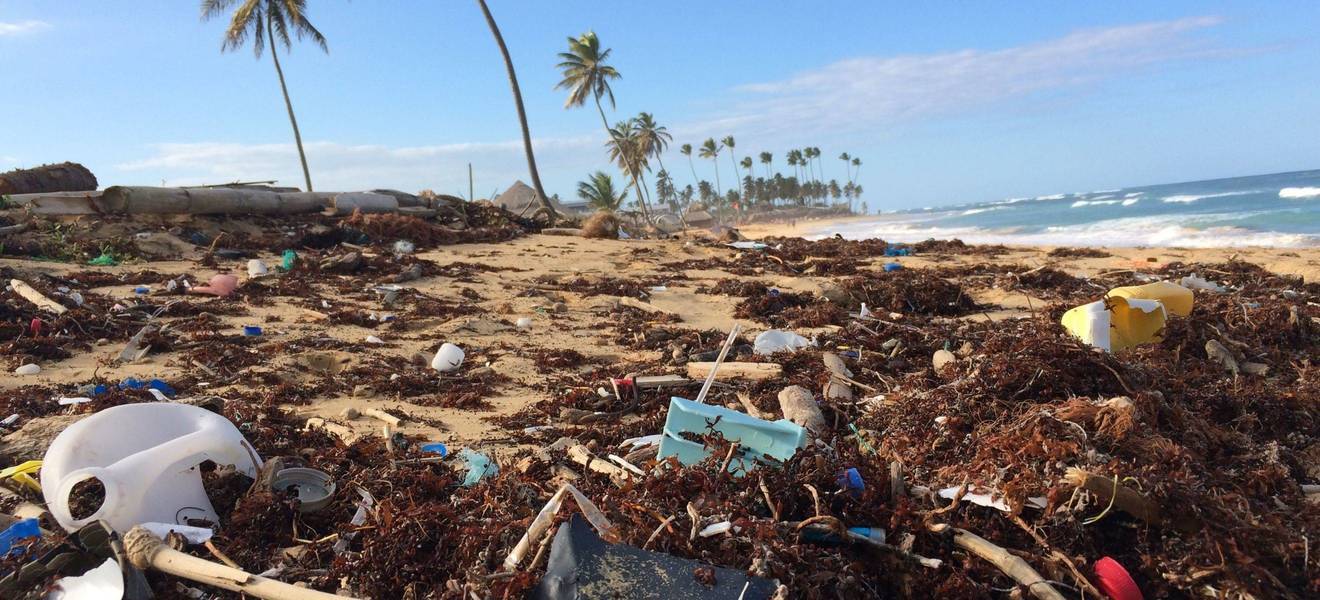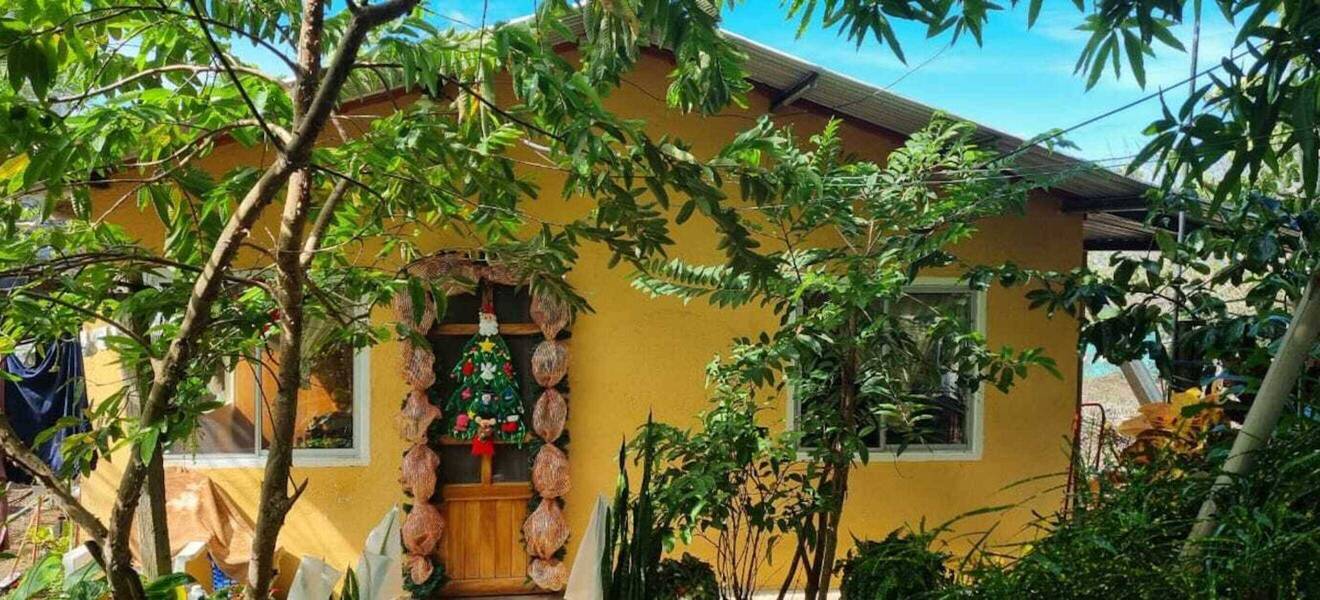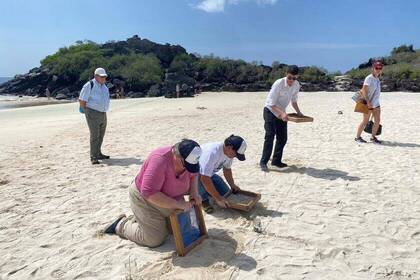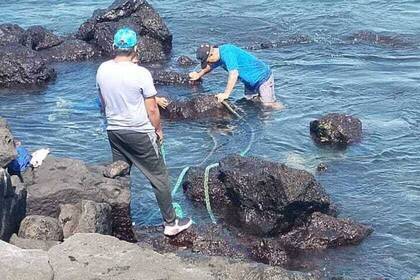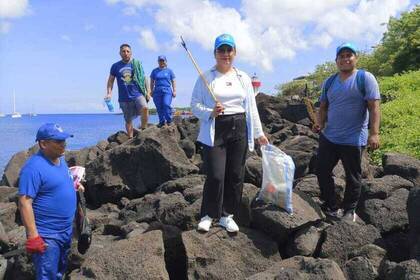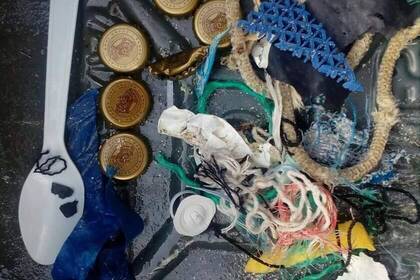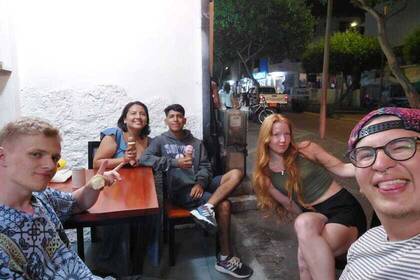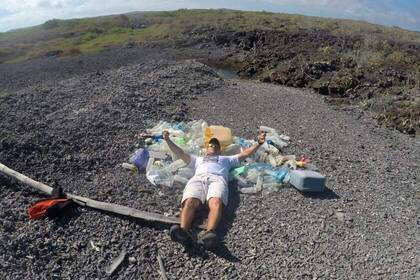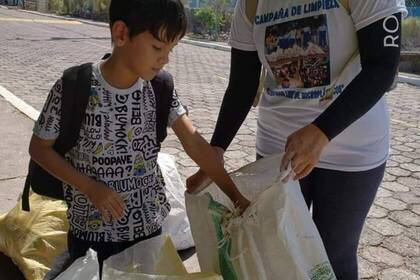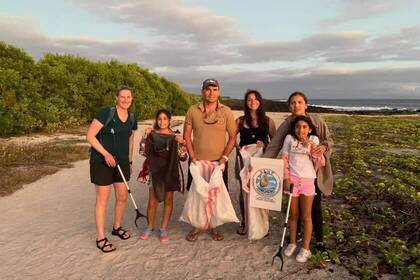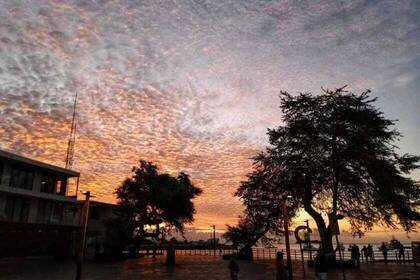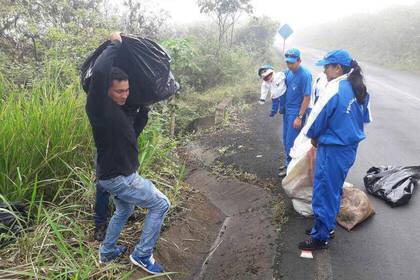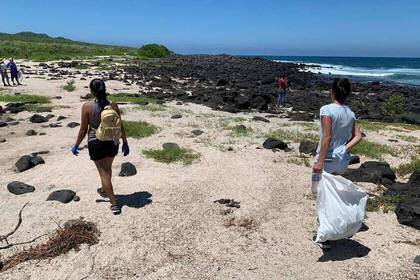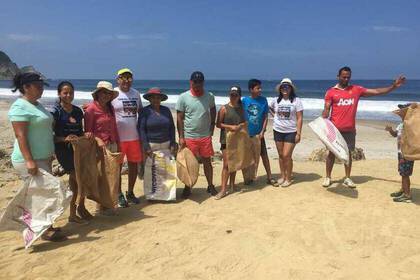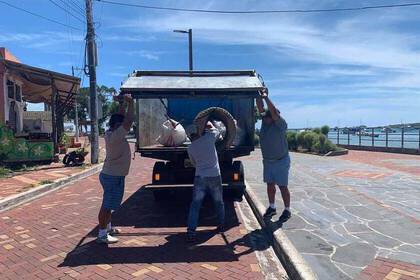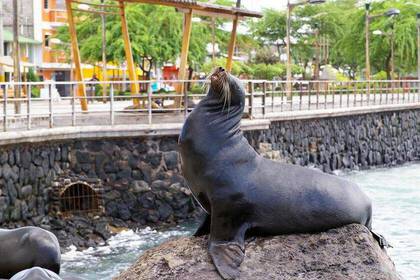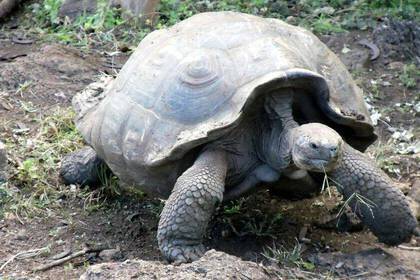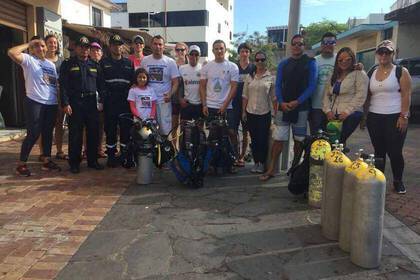Plastic-free Galápagos - environmental protection project
- Directly at the sea
- Right in the national park
- Work outdoors
On the Galápagos island of San Cristóbal, seals sunbathe peacefully next to people on the beach. It is an idyll that is now threatened by plastic waste. An environmental protection program takes care of cleaning the beaches and raising public awareness. Support the program actively and make a valuable contribution to nature conservation!
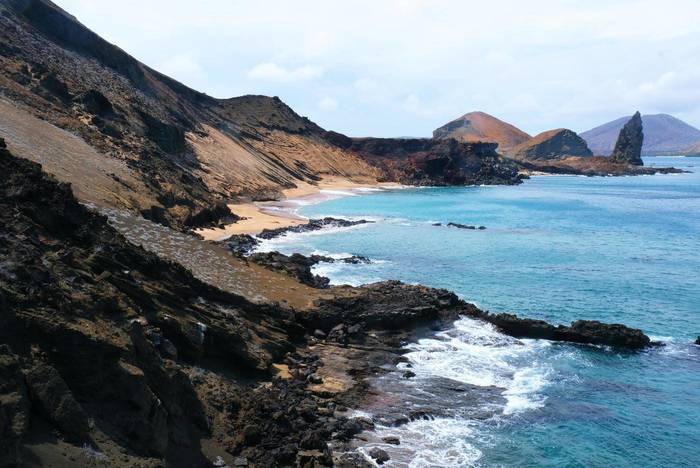

Take immediate measures to combat climate change and its effects.
What's the matter?
The Galápagos Islands are world famous for their giant turtles, volcanoes and corals. Due to the fact that the archipelago lies more than 1.000 kilometers from the Ecuadorian mainland, a unique flora and fauna has developed here in seclusion. There are 146 animal species here that do not occur anywhere else in the world!
Plastic pollution in the world's oceans is a global problem that also affects the Galápagos Islands. The packaging materials, plastic bottles and disposable bags are not the only danger. When these decompose, they become microplastics: tiny particles, most of which are not biodegradable. When fish ingest them, these toxic substances enter the food cycle and also threaten human health.
An initiative on the island of San Cristóbal, which has existed since 2017, has been campaigning against plastic waste, with the pollution of the coasts with microplastics being a particular issue. One focus here is to collect and recycle the plastic waste. The whole initiative is part of a larger environmental protection campaign in the population, which is mainly active in schools. Even children and young people should be involved in the project by taking part in collecting rubbish and recycling it.
Your tasks as a volunteer
Cleaning the coast is one of the main tasks as a volunteer. You go out with a team and collect plastic waste on the beach, in the shallow water and sometimes inside the island. You then sort the garbage and evaluate the proportion of microplastics. In the project, you will also help with garden maintenance, painting schools and colleges, and making compost for native ornamental and crop plants.
In addition to the Beach Clean Up campaigns, you and the team go to schools to make recycled items from the rubbish. This takes place within a broader framework of environmental education: you work with the children on measures to reforest the island and you can give them swimming lessons so that they are able to collect plastic on the beaches themselves. In addition, joint cycling activities are organized with a cycling club for children. So you can explore the area with the children.
Work hours are Monday to Friday from 8:30 a.m. to 16:30 p.m. with a two-hour lunch break. The table below provides approximate information about what the daily routine looks like - but this can of course vary, depending on the weather and other plans.
Activities 1st week
| Monday | 9:00 | Conservation Activity (Collecting and Snorkeling) |
| 14:30 | Counting of the collected plastics and microplastics Meetings for social gatherings |
|
| 16:00 | Joint cycling activity with the Rad Club | |
| Tuesday | 9:00 | Garden maintenance, compost for native plants |
| 14:30 | Sow native plants and ornamental plants | |
| 16:00 | Joint cycling activity with the Rad Club | |
| Wednesday | 8: 00 14 to: 30 pm | Cooperation in the clearing and planting of Finca La Ponderosa |
| 16:00 | Joint cycling activity with the Rad Club | |
| Thursday | 9:00 | Garden maintenance, compost for the native plants |
| 14:30 | Planting native plants and ornamental plants | |
| 16:00 | Joint cycling activity with the Rad Club | |
| Friday | 8: 00 14 to: 30 pm | Cooperation in the clearing and planting of Finca La Ponderosa |
| 16:00 | Joint cycling activity with the Rad Club |
Activities 2st week
| Monday | 9:00 | Visit to the Interpretation Center (here you can learn about the history of the Galápagos Islands) Collecting plastic and microplastics on the beach |
| 14:30 | Counting of the collected plastics and microplastics Meeting to exchange activities |
|
| 16:00 | Joint cycling activity with the Rad Club | |
| Tuesday | 9:00 | Visit to the Colegio Fisco-misional San Cristóbal Assistance with maintenance in the buildings of the educational institution |
| 14:30 | Visit to the Colegio Fisco-misional San Cristóbal Assistance with maintenance in the buildings of the educational institution |
|
| Wednesday | 9:00 | Care of the vegetable garden Compost for the native plants |
| 14:30 | Planting native plants and ornamental plants | |
| 16:00 | Joint cycling activity with the Rad Club | |
| Thursday | 9:00 | Hike to Cerro Las Tijeretas (collecting plastic and microplastics, spotting flora and fauna, snorkeling) |
| 14:30 | Counting of the collected plastics and microplastics | |
| 16:00 | Joint cycling activity with the Rad Club | |
| Friday | 8: 00 14 to: 30 pm | Cooperation in the clearing and planting of Finca La Ponderosa |
| 16:00 | Joint cycling activity with the Rad Club |
Accommodation Catering
Homestays in San Cristobal
The accommodations are located on San Cristobal Island. There are six so-called Family Houses that are part of the project and can each accommodate one or two volunteers. Each accommodation offers breakfast and lunch and there are water dispensers and internet access.
The project is located in a national park, which is why care is taken to leave the environment as natural as possible. However, there is still the opportunity to go shopping near the accommodation or explore the nightlife with the other volunteers in the evening. There are smaller shops, bars, restaurants, discos and a gym. About 5 km from the accommodation there is a small historic town where the settlement of the island began.
From the Family Houses, the volunteers walk about 10 minutes to the project. Dance, gastronomy and other events usually take place on the weekends.
Location
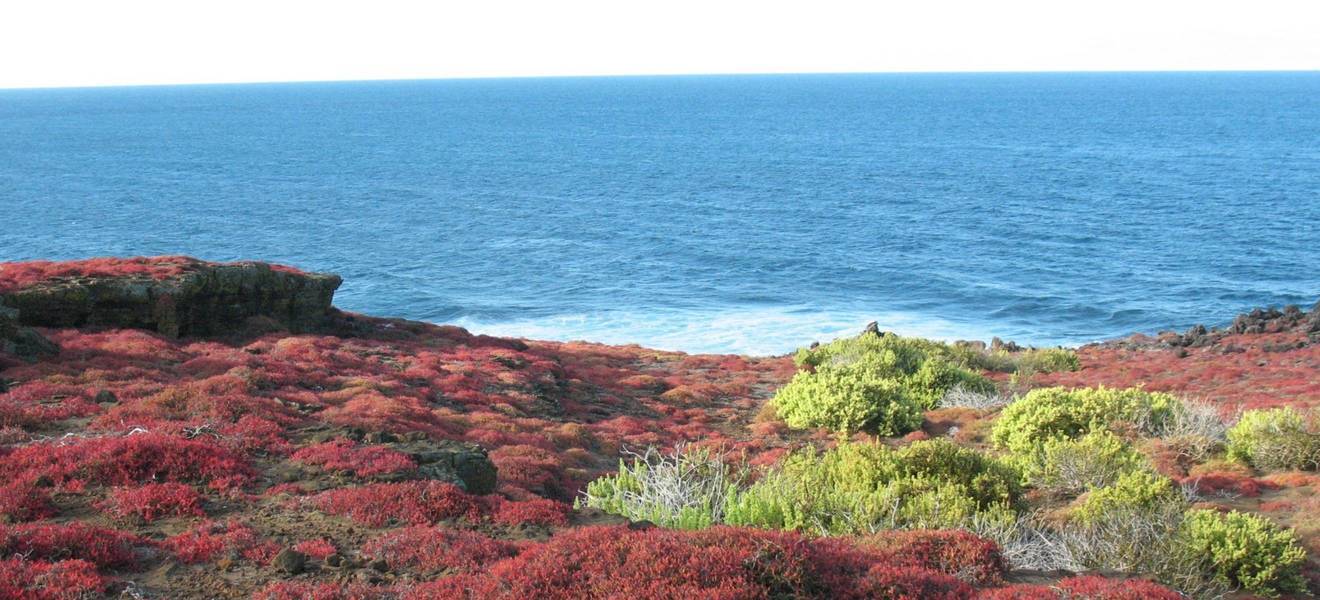
Galapagos
The Galápagos Islands are a group of islands in the Pacific. They are world famous for their giant tortoises, volcanoes and corals. Here you can make excellent wildlife observations, because the fact that the archipelago is more than 1.000 kilometers off the Ecuadorian mainland, a unique animal and plant world has developed here in the seclusion.
There are over 140 animal species here that are found nowhere else in the world! Charles Darwin also visited the islands in the 19th century and made many observations there that helped him develop his theory of evolution. That's why you'll also find research institutes dedicated to him, monuments and more on the islands.
San Cristóbal is the easternmost island in the archipelago. Many sea lions live on the beaches, coral reefs impress in the water and a turtle nursery has its base here.
There is also a lake and an extinct volcano on the island.
Animal and nature lovers in particular will feel at home on the Galápagos Islands. The landscapes and unique animal species will surely amaze you!

Your free time on the Galapagos island of San Cristóbal
You won't get bored on the Galapagos island of San Cristóbal: An impressive range of sights and leisure activities await you here.
A nice destination is the port city of Puerto Baquerizo Moreno. It is the oldest settlement on the Galapagos Islands and is a good place to buy a souvenir or two or to stop off at one of the delicious restaurants. The local town beach, Playa de Oro, is less suitable for swimming, but you can watch sea lions sunning themselves on the rocks and teaching their young to swim in the depths of the sea.
The island is also a true paradise for all bird species. All three species of boobies native to the Galapagos Islands live in Punta Pitt: the blue-footed booby, red-footed booby and the Nazca booby. Bird watching in this region can be wonderfully combined with a hike in the extraordinary landscape. In addition, the north-east tip of the island is particularly popular for diving and snorkeling.
You can also go diving and snorkeling at Kicker Rock. The "sleeping lion", as the rock formation is also called, is the highlight of the island. The remnant of a volcanic tuff cone was formed when hot magma met cold seawater long, long ago. In addition, Kicker Rock is a very popular photo opportunity. Not only tourists feel at home there, numerous birds, colorful fish, sea turtles, rays and even hammerhead sharks can also be observed in the immediate vicinity of the rock.
On-site procedure
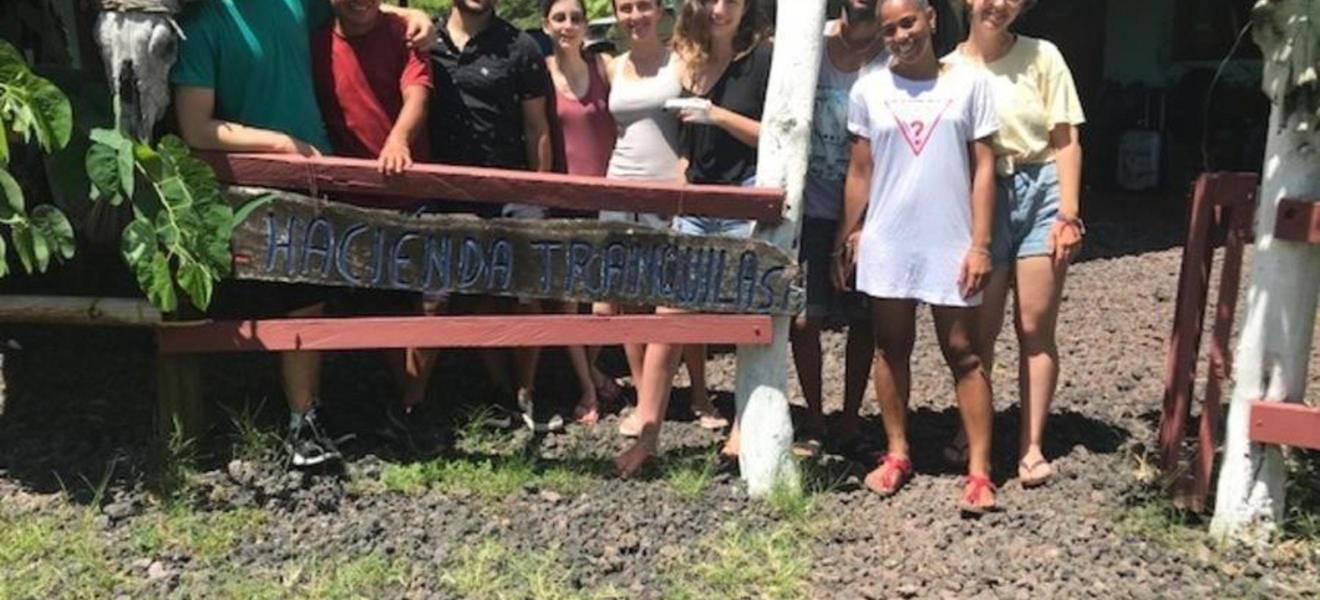
Arrive in San Cristobal
You land on the island of San Cristóbal and are picked up by a team member from the organization. From there you drive to the accommodation by car. Depending on traffic conditions and accommodation, the journey will take between 20 and 40 minutes. You are expected in the project on Sunday.
conservation project
First you drive to the city together and do a short tour, buy groceries etc. before you go to the farm in the highlands. Upon arrival, there will be a brief introduction and everything important about the project will be explained to you. After that, the day is free to spend as you please.
language course
If you have booked our language course, you will stay in Quito for the time being. Here your five-day language course takes place directly in the accommodation. You can brush up on your Spanish skills and at the same time get to know everyday life in Ecuador in an interactive course through joint trips to Quito. You will be expected on the Galápagos Island on the Sunday after your language course. For the flight from the mainland to the island and back you have to reckon with a total of 150 to 400 euros.
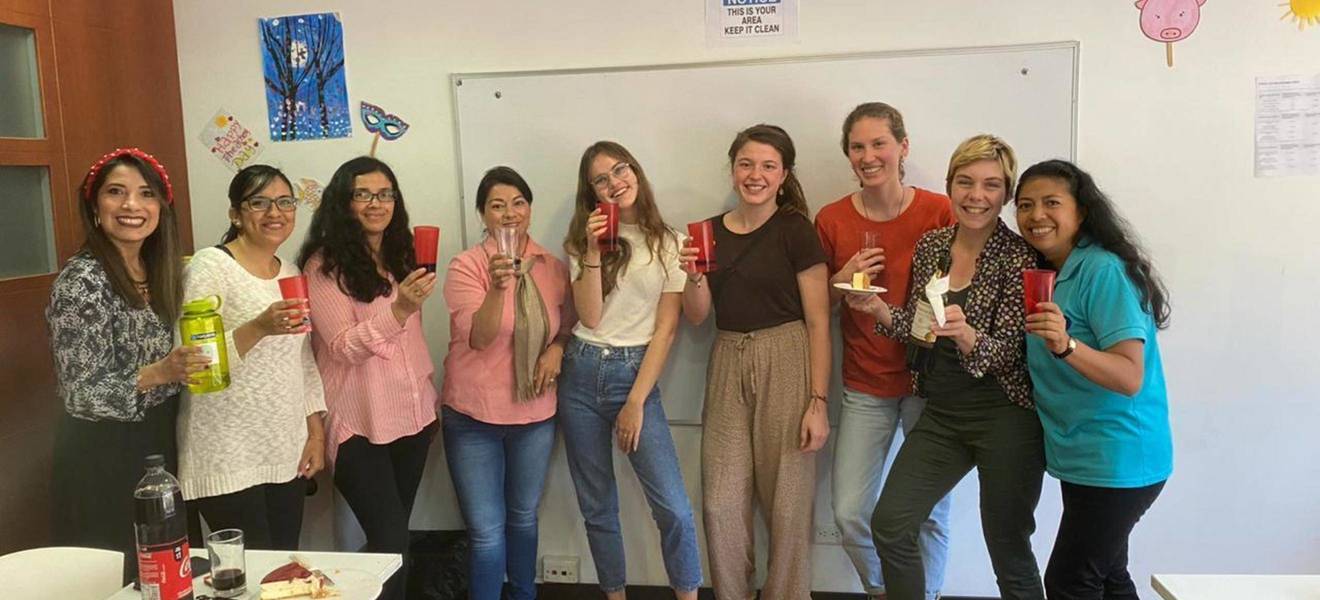
Orientation program in Quito
Before you go to the island, our team will prepare you for your upcoming stay in Ecuador during the first two days that you will be staying in Quito.
The orientation program takes place the day after your arrival at the project house. You will learn more about the Galapagos Law and its restrictions, the activities and the project. The actual project begins on the second day after your arrival. You will be offered activities that will help you get to know the country and the people better and learn more about the culture. Our team will show you what you need to consider so that you can find your way around the area easily and inform you about your activities and tasks in the project.
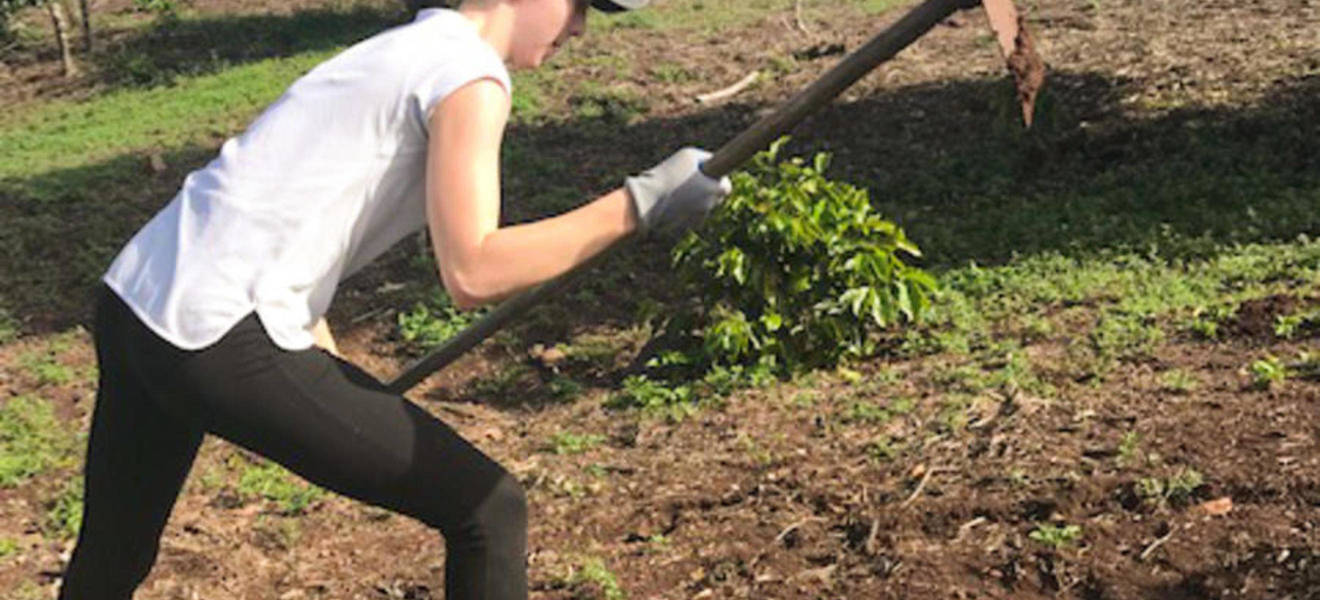
Your first day in the project
On the second day after your arrival, you finally start working on the project. On your first day, our contact person will accompany you to your place of work and introduce you to the project coordinator. You will receive an introduction to the activities on site. These are redistributed every day in the morning.
Pricing
-
4 weeks of participationbase fee€ 2.290, -
-
up to 6 weeks respectivelyextension week€ 460, - / week
included
Services
Before departure
- Individual advice and support from our trained RGV team in Munich
- Organization including placement in the project and coordination of your stay on site
- Assistance with preparation: visa, health care, travel insurance, etc.
- Non-binding flight advice
- Travel ABC with packing list for your travel preparation
- RGV t-shirt
On site
- Orientation program with the team on site
- Support and guidance from the on-site team
- RGV 24h emergency number
- Project t-shirt to wear during on-site activities
- Airport transfer on the agreed day of arrival
- Accommodation in a host family
- Dive off the coast of the Galápagos Islands
- Meals: breakfast (hostel) or breakfast and lunch (host families)
After return
- Participation confirmation of your voluntary commitment
- Reflection course on your experiences abroad
- Evaluation sheet and optional feedback discussion
not included
Services
- Round trip
- Private expenses on site
- Excursions with microlight flights
- Travel and cancellation insurance
- Visa and Vaccinations
- All nights outside your agreed accommodation
- Public transport and extra transfers
- Airfare from mainland Ecuador to the Galápagos island of San Cristobal
- Entrance fee for the Galápagos National Park (approx. US$ 200)
Note: This fee must be paid in cash at the arrival airport. Otherwise you are not allowed to leave the terminal and you are not allowed to enter the islands.
- Airport transfer on departure day
Individual
Recommended additional offers
& must-haves
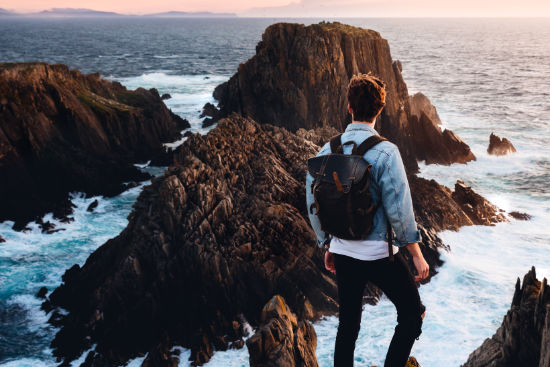
Would you prefer to stay in a single room? Are you vegan or do you have special requests for food? Or do you want to do some cool trips with other volunteers in your free time and explore the country?
With us, you benefit from a variety of optional additional services that you can add individually to your booking, depending on your preferences.
Cheap flights with our flight partner thanks to volunteer rates.
Would you like to receive a cheap flight offer for your stay abroad that is perfectly tailored to you? After you have successfully registered, you can have a non-binding offer created.
The excellent rates for volunteers, students and young people are a great advantage. Arrival times and flight time changes can also be sent directly to RGV upon request, so that our RGV teams in the destination countries are always informed about your arrival times.
These special tariffs give you special added value:
- maximum flexibility for rebookings and cancellations
- generous baggage allowance
- Additional discounts on one-way flights: The new volunteer tariffs include attractive discounts to reduce your financial burden on one-way flights (e.g. for stopovers, project or country combinations).
Benefit from the 4 in 1 ERGO travel insurance.
You can easily book the long-term travel protection of ERGO Reiseversicherung after you have registered. You will receive the links to this automatically after a successful registration.
The following building blocks are included:
- Health Insurance
- Comfort protection: accident, liability and interruption insurance
- Travel insurance
-
Dive to clean the coastDives in the GalápagosFree of charge
-
One week intensive course before project start in QuitoLanguage course in Quito520 €
-
Two tools to get you started on your personal developmentPersonal development introductory courseFree of charge
RGV
FAQ
to the project
What are the project fees used for?
Although we are a non-profit organization, there are costs associated with volunteering abroad. Find out here, why volunteering requires money and what your project fee is used for.
What visa do I need for Ecuador?
For Ecuador you need a tourist visa, which you can apply for upon arrival. This is valid for 90 days.
What language skills do I need for the project?
You don't need to know Spanish in advance, but as a beginner you will have to book the language course on site.
What vaccinations/ health precautions do I need?
If you are traveling from a yellow fever area, you need a yellow fever vaccination. Otherwise there are no compulsory vaccinations.
We generally recommend a consultation in a practice for travel and tropical medicine.
You can get general information about recommended health care and vaccinations online Center for Travel Medicine as well as on the side of Foreign Office.
What are the requirements for the environmental project?
No special prior knowledge is required to participate. Motivation, good health, the ability to work in a team, fun working outdoors and an interest in environmental issues are important.
Are there age restrictions for the project?
Volunteers between the ages of 20 and 60 can take part in this project.
What do I have to consider as an LGBTQ person?
Please be aware that homosexual acts are considered undesirable in many countries in Africa, Asia and Latin America and are even punishable by law in some places. In general, people who are identified as queer are often exposed to hostility.
For example, get information from Foreign Office about the exact regulations in your destination country.
Ready to volunteer in Ecuador? Start your adventure abroad with Rainbow Garden Village!
Rainbow Garden Village has been offering volunteer work and internships abroad since 1999. What started as a small student initiative in Ghana has now grown into an organization with over 250 projects around the world.
You can be sure that your work as a volunteer will be an unforgettable experience. Bring your commitment and your knowledge to do good locally - and at the same time benefit from the unique experiences that will promote your personal development.
Become part of our RGV community!
We look forward to you.
RGV
Your way
to the volunteer
1
Choose your volunteer project and register online.
2
We will review your application and confirm your participation.
3
Prepare for your assignment online or in our preparatory seminar in Munich.
4
Here we go! During your volunteer work, we will support you at any time with our on-site team.
More projects you too might be interested
Are you not sure yet? Think about whether a spontaneous assignment as a volunteer abroad is the right choice for you or whether you would like to Voluntary social year (FSJ) abroad want to decide.
With RGV you achieve flexible volunteer work in different countries worldwide. Maybe there is one too Internship abroad the ideal choice for you to gain valuable experience abroad.
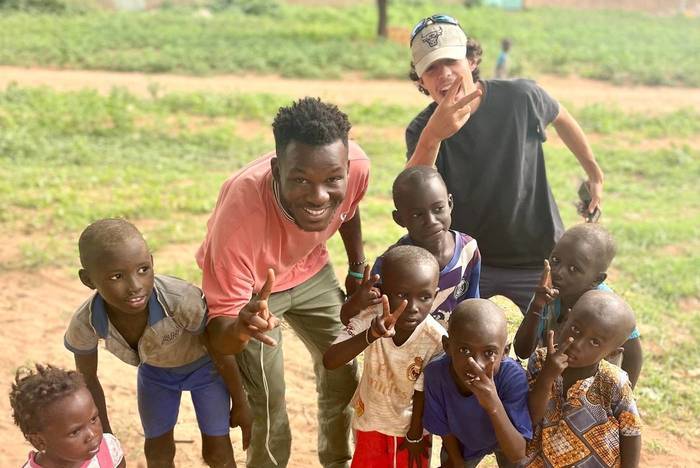
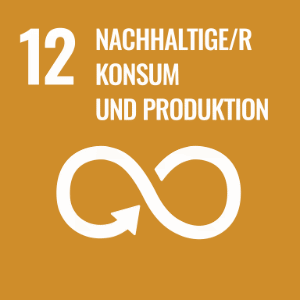
Senegal | farm work
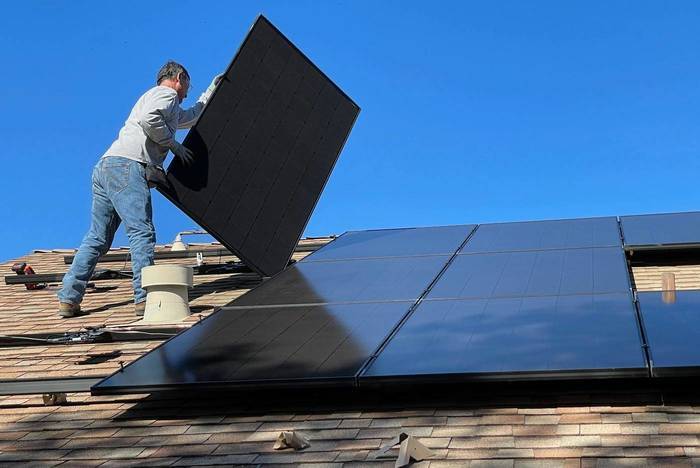
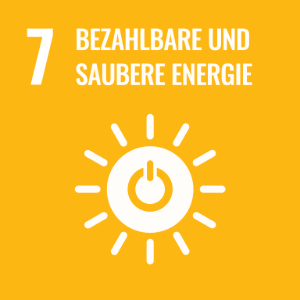
Greece | Renewable energy
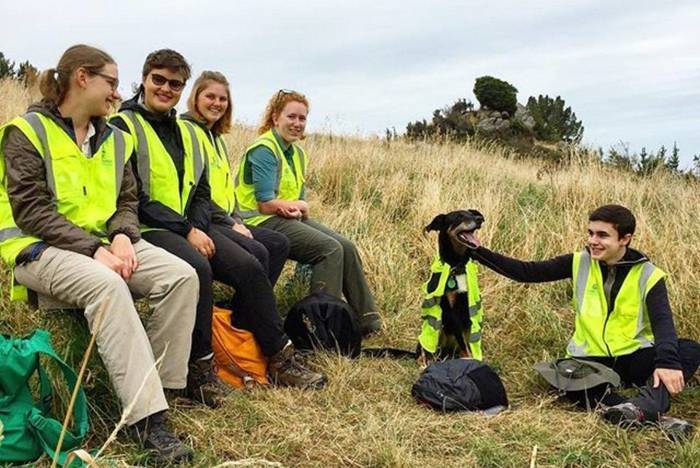

New Zealand | environmental Protection

Ecuador | environmental Protection
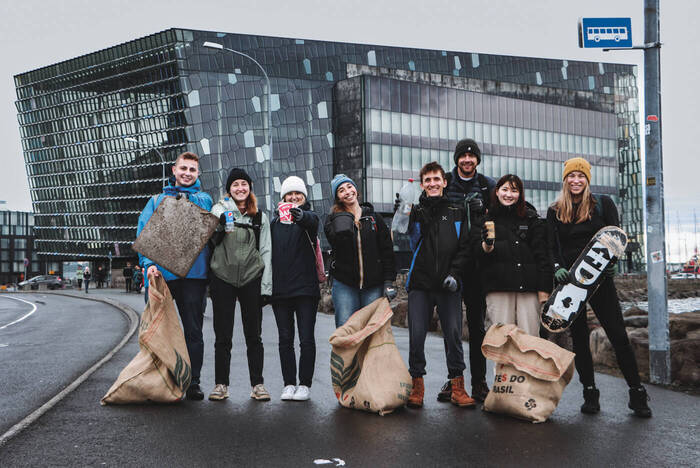

Iceland | environmental Protection

